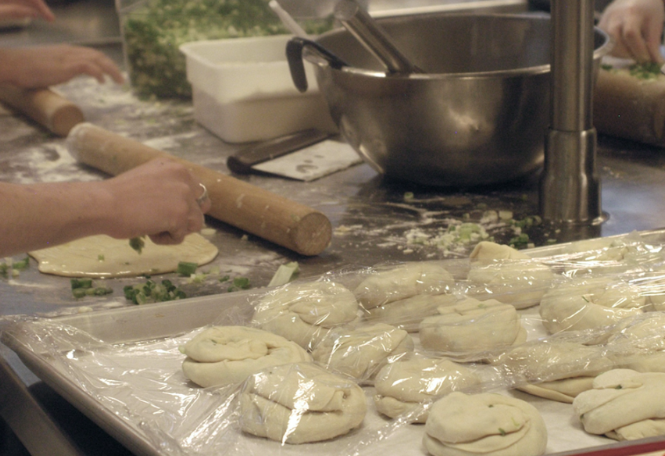Local businesses rely on community during challenging times
October 30, 2023
NESPA Winner: News story, 2023
The Cypress, Brookline High School, Brookline, MA
Nestled in the bustling heart of Coolidge Corner, Party Favors may not be Brookline’s oldest time capsule, but for the bakery’s head chef John Pergantis, it is certainly the town’s most delicious. Nonetheless, it hasn’t always been easy surviving in a climate in which it seems small businesses just can’t seem to catch a break.
Following nearly two years of pandemic-related lockdowns and restrictions which hampered their operations in many ways, small businesses across the country are feeling the strain of inflation-induced price increases and supply-chain issues that have kept millions of products off shelves. They struggle to fill positions when the demand for workers has reached a high unmatched in recent history. And, at a time when small business owners have begun to recuperate what they lost over the past two years, they are worried that inflation could spell disaster for them in two key ways: higher costs and skittish customers.
Like many other communities, Brookline has not been immune to the economic downturn across the country. In 2021, according to the annual Storefront Survey conducted by the Brookline Department of Planning and Community Development, the vacancy rate of Brookline businesses hit a historic high of a little over twelve percent, while the retail rate, or the percent of businesses that are retail stores, dipped to 17.5 percent a slight decrease from pre-pandemic levels. Further, the rate of new or continued vacancies in Brookline businesses outpaced the rate of opened businesses.
Massachusetts Small Business Administration Director Robert Nelson said an uncertain future makes the economic hardships plaguing small businesses even more concerning.
“I’m sure many businesses are trying to save costs and reduce expenses right now, trying to figure out if there is a recession,” Nelson said. “Running a small business is hard, and these [newfound economic] fears make it difficult for owners to be successful.”






























